
Raising a Leader
Harness these characteristics to level-up your parenting 31/ Tots Will Play
Wildly fun adventures for younger kids, now that school is in session


Raising a Leader
Harness these characteristics to level-up your parenting 31/ Tots Will Play
Wildly fun adventures for younger kids, now that school is in session

Bruce Harrell reflects on family, education and his vision for Seattle 12/

Jonathan Haidt kicks off ParentEd Talks Oct. 15.


Local Resources
Schools + Preschools 17
Birthdays 29
+ Activites 37
Parenting
EDUCATION
Fostering Youth Leadership in Schools 20
Positive local programs challenge kids to step up and take charge
RAISING GREAT KIDS
New Kid on the Block 27 10 ways to make the new kid at school feel welcome
CELEBRATIONS
Kids Party Invite
Etiquette 101 29
Read this before sending out your next birthday invitation
COMMUNITY
Neighborhood Spotlight 35
Learn how to “Do the Puyallup” like a local
ACTIVITIES
Practice Makes Perfect 37
Encourage these daily habits to help kids excel at their craft
Leading the Way 12
Mayor Harrell ponders the importance of leadership and Seattle’s future
Characteristics Great Leaders and Parents Share 23 Discover why being a boss doesn’t cut it with kids
OUT + ABOUT Terrific Toddler Excursions 31
Now that the big kids are back in school, it’s time for the little ones to play
September Play List 38 Sunflowers, spawning salmon and the state fair are cued up for fun


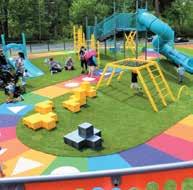
Seattle Aquarium’s recently opened Ocean Pavilion invites visitors to explore the Pacific beyond our rocky Puget Sound shores.

What’s the most cherished school supply you had as a kid?
Things are really heating up over here at ParentMap as we prepare for the school year ahead. Sure, we’re swimming in freshly sharpened Ticonderogas and crisp, clean white notebook paper in between mapping out after-school activity runs and stocking up on easily packable lunch items. But we’re also busy getting ready to launch our 2024–2025 ParentEd Talks series — and what a series it will be! New York Times best-selling author, Jonathan Haidt, author of “The Anxious Generation,” kicks it all off on Oct. 15, 2024. The subject of his talk? Rewiring childhood in the age of social media. His book serves as the touchstone of our current content focus — the youth mental health crisis. We’re digging into its root causes and giving parents the resources they need to course correct in every issue this year. But Haidt’s inaugural lecture is just the tip of the iceberg when it comes to powerhouse speakers. See who else will be sharing their wisdom with viewers inside this issue.
After you’ve registered for the ParentEd Talks series, enjoy my interview with Seattle Mayor Bruce Harrell who shares delightful insights on leadership and his vision for the city’s future, plus his favorite way to spend the weekend (p. 12). Then one of our regular contributors, Sanya Pelini, Ph.D., examines what characteristics great leaders and great parents share (p. 23). She analyzed the research and came up with five actionable things you can do today to keep your parenting game tight. Also in our leadership hopper: local programs that challenge kids to take charge (p. 20).
As you’re pondering the start of the school year and prepping your kids to go back, share Katy Clark’s article on welcoming the new kid at school with them (p. 27). Being the friendly face in the classroom isn’t always easy, but it is incredibly important. As is configuring your weekend plans for the final few days of sunshine we’ll have before the Big Dark descends. The September Play List maps out 15 family activities to help you soak up warm rays and those coveted family vibes that can only come during summer’s schedule-free days (p. 38). Finally, for the little ones who aren’t heading to the classroom anytime soon, Natasha Dillinger has planned out bite-sized play ideas to keep them busy (p. 31).
Here’s to a spectacular school year, families!
— Allison Sutcliffe, managing editor
SEPTEMBER 2024, VOL. 21, NO. 9
PUBLISHER
Alayne Sulkin
EDITORIAL
MANAGING EDITOR
Allison Sutcliffe
SENIOR EDITOR
Kristin Leong
ASSOCIATE EDITOR
Kari Hanson
FAMILY FUN EDITOR
Meredith Charaba
CALENDAR EDITOR
Julie Dodobara
COPY EDITOR
Sunny Parsons
CONTRIBUTORS
Michael Berry, Katy Clark, Natasha Dillinger, Sanya Pelini, Ph.D.
DIGITAL MARKETING
MARKETING DIRECTOR
Lindsey Carter
EMAIL MARKETING SPECIALIST
Devon Hammer
SOCIAL MEDIA SPECIALIST
Brooke Collins
ADVERTISING SALES + PARTNERSHIPS
DIRECTOR OF COMMUNITY
PARTNERSHIPS + ADVERTISING SALES
Jessica Collet
SENIOR ADVERTISING AND PARTNERSHIPS MANAGER
Ida Wicklund
ADVERTISING + PARTNERSHIPS MANAGER
Shannon Johnson
EVENTS + COMMUNITY
PARTNERSHIPS SPECIALIST
Brenna McCown
CLIENT SERVICES + DESIGN COORDINATOR
Angela Goodwin
ADVERTISING CLIENT SERVICES SPECIALIST
Mallory Dehbod
DIGITAL ADVERTISING + MARKETING SPECIALIST
Taryn Weiner
PRODUCTION COORDINATOR
Tamryn Nell
ART + PRODUCTION
SENIOR DESIGNER
Amy Chinn
ADMINISTRATION
BUSINESS MANAGER
Carolyn Brendel
OPERATIONS ASSISTANT
Erika Widjaja
PARENTMAP EDITORIAL ADVISORY BOARD
Benjamin Danielson, M.D.
CLINICAL PROFESSOR, UW SCHOOL OF MEDICINE PRACTICING PHYSICIAN, UW MEDICINE
Joan Duffell
RETIRED EXECUTIVE DIRECTOR, COMMITTEE FOR CHILDREN
John Gottman, Ph.D. THE GOTTMAN INSTITUTE PROFESSOR EMERITUS, UNIVERSITY OF WASHINGTON
Laura Kastner, Ph.D. PSYCHIATRY + BEHAVIORAL SCIENCES, UNIVERSITY OF WASHINGTON
Bea Kelleigh VICE PRESIDENT, DOVETAILING, LLC
Yaffa Maritz, M.A. FOUNDER, LISTENING MOTHERS + COMMUNITY OF MINDFUL PARENTING
Daniel J. Siegel, M.D. EXECUTIVE DIRECTOR, MINDSIGHT INSTITUTE
CONTACT
Mr. Sketch scented markers
Esprit book bag
Jansport backpack
INFORMATION
Advertising information
206-709-9026 or advertising@parentmap.com
Fax 206-709-9031
Calendar submissions calendar@parentmap.com
Editorial submissions editor@parentmap.com
Distribution distribution@parentmap.com
Administration 206-709-9026, parentmap.com
Subscriptions subscriptions@parentmap.com
Subscription rate 1 year: $12
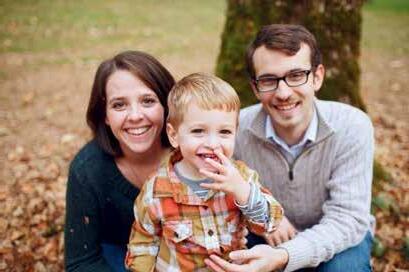









Infants are training like AI Turns out, babies aren’t just cute helpless blobs — they’re busy building advanced foundation models, like Artificial Intelligence (AI). Previously, AI models were trained on particular tasks for which they were needed. For example, a self-driving car was trained to recognize roads. Today, however, AI is pre-trained to note patterns within vast quantities of data, without focusing on any specific task. A new study from Trinity College Dublin shows that baby brains are more mature than originally understood. Using neuroimaging to measure the development of infants’ minds, scientists discovered that human brains are more highly functioning than many other species at birth, showing that babies are constantly processing vibrant streams of information from their senses. This strategy – for both babies and AI – leads to quicker learning and better performance.

Musical homes support verbal kids
Recent University of Washington research reveals that infants hear far more speech than music. Parents might want to warm up their singing voices, as this study also found that the more music a baby was exposed to, the more their brains responded to speech as they learned to talk. The study, published in Developmental Science, analyzed audio recordings from infants’ homes and found most music came from electronic devices, not rattle-shaking or lullaby-singing humans. Researchers noted that while speech directed at infants grew as kids aged, music exposure remained static or decreased.
September babies win the height lottery Does your son have a September birthday? Good news if you’re hoping for a volleyball star. Researchers in Spain compared the heights of adult men in Spain’s rural population and found that men born at the end of the summer and during the fall were taller on average than their peers with birthdays from other times of the year. Men with September birthdays were especially vertically gifted, with heights 0.2 inches above the annual average, and nearly half an inch above February, statistically the birth month of short kings.
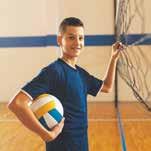
Could electric buses combat childhood asthma?
By Kristin Leong
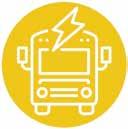
There are about 500,000 school buses in use in the U.S., and a substantial portion are old, pollution-spewing diesel beasts. Switching diesel school buses to electric ones can yield thousands of dollars worth of climate and health benefits per bus, according to a recent study published in The Proceedings of the National Academy of Sciences. The researchers calculated that in a large city, replacing a 2005 diesel school bus with an electric one would achieve $207,200 in health benefits per bus, resulting in lower mortality rates and fewer cases of childhood asthma.

Imaginary friends make a real impact
Lucky researchers in Mashhad, Iran had the charming assignment to interview over 30 6- to 9-year-olds about the role of their imaginary friend in their lives. In the study published by BMC Psychiatry last year, the scientists concluded that imaginary companions promote creativity in kids and provide respite from the challenges of the real world. Main themes that came up in their interviews included alleviating loneliness, amusement, emotional regulation and guidance from imaginary companions for behavior.
The Boomers aren’t moving
According to a report by Redfin, Seattle’s housing market has been taken over by the youth. In the Emerald City, 42.7 percent of new mortgages are going to buyers under age 35. Meanwhile, the 65–74 age group are not feeling the home-buying itch, securing only 2.9 percent of new loans. It seems that many aging locals are choosing to stay put in McMansions that have swelled in value after being purchased in the ‘80s and ‘90s with Blockbuster video vouchers.
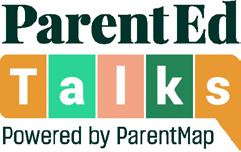




Parenting isn’t easy. We’re here to help.
12 virtual speakers to guide your journey
12 virtual speakers to guide your journey
Let’s face it — parenting is tough, especially without a manual to guide you through every twist and turn. That’s where ParentEd Talks come in. ParentMap is excited to offer a transformative series of parent education webinars, designed to provide the guidance you need to support your child’s development.
Turn the page to see the full slate of all-star speakers and topics
Turn the page to see the full slate of all-star speakers and topics
Parenting isn’t easy. We’re here to help. Watch anytime, anywhere!
Parenting isn’t easy. We’re here to help. Watch anytime, anywhere!
Let’s face it — parenting is tough, especially without a manual to guide you through every twist and turn. That’s where ParentEd Talks come in. ParentMap is excited to offer a transformative series of parent education webinars, designed to provide the guidance you need to support your child’s development.
Let’s face it — parenting is tough, especially without a manual to guide you through every twist and turn. That’s where ParentEd Talks come in. ParentMap is excited to offer a transformative series of parent education webinars, designed to provide the guidance you need to support your child’s development.
Turn the page to see the full slate of all-star speakers and topics
FEATURING
FEATURING
Jonathan Haidt, Ph.D., author of “The Anxious Generation”
Jonathan Haidt, Ph.D., author of “The Anxious Generation”
FEATURING
Jonathan Haidt, Ph.D., author of “The Anxious Generation”


Participate in the live Q&A or access the event recordings any time.
Participate in the live Q&A or access the event recordings any time.
Watch anytime, anywhere!
Participate in the live Q&A or access the event recordings any time.
Register now: ParentMap.com/talks
Register now: ParentMap.com/talks










Q&A hosted by Laura Kastner, Ph.D.
ParentMap is honored to present Laura Kastner, Ph.D., as the series host. Kastner is the author of a number of parenting books, including the acclaimed “Getting to Calm” series, and a clinical professor of psychiatry and behavioral sciences at the University of Washington. Kastner will lead each speaker through a live audience Q&A, addressing your most challenging parenting questions.
The Anxious Generation: Essential Strategies for Rewiring Childhood
Jonathan Haidt, American social psychologist and author of “The Anxious Generation” Oct. 15, 2024 | noon–1 p.m.
Good Kids, Bad Therapy: Better Approaches to Mental Health Help
Abigail Shrier, author of “Bad Therapy: Why The Kids Aren’t Growing Up”
Oct. 29, 2024 | noon–1 p.m.
Level Up: Winning Strategies for Parents of Gamers
Dr. Alok Kanojia, cofounder of Healthy Gamer, author of “How to Raise a Healthy Gamer” Nov. 7, 2024 | noon–1 p.m.
Raising Digital Natives: Solutions for Healthy Screen Time Habits
Delaney Ruston, documentary filmmaker, author and physician Nov. 19, 2024 | 7–8 p.m.
All in a Day’s Play: Boosting Brain Power Through Play
Teacher Tom, early childhood educator and author
Dec. 4, 2024 | 7–8 p.m.
Navigating Neurodiversity: Strength-Based Support for ADHD Kids
Dr. Edward (Ned) Hallowell, psychiatrist and New York Times best-selling author
Jan. 16, 2025 | noon–1 p.m.






Confident Conversations: Guiding Kids Through Puberty and Adolescence
Julie Metzger, founder of Great Conversations, and Peter Metzger, pediatrician
Feb. 5, 2025 | 7–8 p.m.
The Lost Art of Civility: Raising Respectful Kids
Robert B. Brooks and Sam Goldstein, co-authors of “Tenacity in Children” and “The Power of Resilience”
Feb. 25, 2025 | noon–1 p.m.
Harmony at Home: Successfully Navigating Parent-Child Differences
Dr. Ann-Louise T. Lockhart, pediatric psychologist and parent coach
March 20, 2025 | noon–1 p.m.
From Chaos to Calm: Compassionate Discipline for Spirited Kids
Joe Newman, author of “Raising Lions”
April 1, 2025 | noon–1 p.m.
Let Go and Let Grow: Raising Confident, Independent Children
Lenore Skenazy, author of “Free Range Kids”
May 6, 2025 | noon–1 p.m.
Nurturing Resilience: Essential Coping Skills for Kids
Janine Halloran, licensed mental health counselor and founder of Coping Skills for Kids
June 5, 2025 | noon–1 p.m.
*All talk times listed in Pacific Time (PT) Register for the entire series for just $50 or individual talks for $10 each.



Seattle Children’s is proud to be the presenting sponsor of the 2023–2024 ParentEd Talks series
Seattle Children’s is proud to be the presenting sponsor of the 2024-2025 ParentEd Talks series.
Scan the QR code below to sign up for Seattle Children’s
Good Growing e-newsletter. Each issue shares timely tips to keep your family as safe and healthy as they can be.


















By Allison Sutcliffe
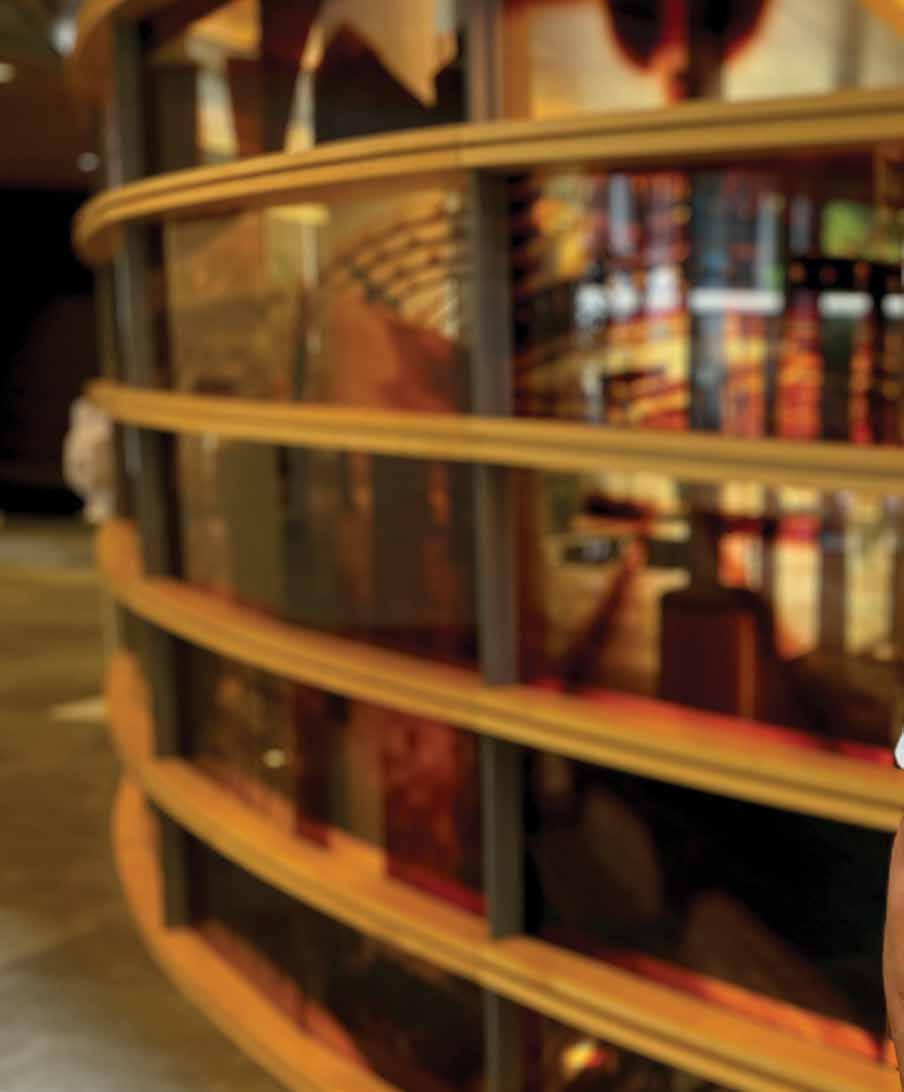
As a Seattle transplant, I’m always a little jealous of those who were born and raised here, who can remember attending Sonics games at the Kingdome and riding skateboards down a deserted California Ave. in West Seattle’s Alaska Junction as kids. Even the drastic changes that have taken place in the Emerald City over my 20-year tenure here are nothing in the grand scheme of Seattle’s evolution.
So when I started to dig into Seattle Mayor Bruce Harrell’s background for this interview, I was pleasantly surprised, and maybe a little envious, to learn that he grew up here. He’s witnessed the area’s lengthy evolution firsthand and now, as the mayor, he’s leading it, informed by his lifetime of experiences. I had the opportunity to talk with the mayor about those formative years, leadership and his vision for the city’s future. Here’s what he had to say:
Q: Being born and raised in Seattle, I’m sure you’ve seen tremendous change during that time. What important changes have you seen that have made Seattle the city it is today?
A: I was born and raised in the redlined Central District, an area that has undergone significant change and transformation over the years as Seattle continues to grow. Those changes have had both positive and adverse effects on our city — we’ve welcomed new neighbors living in Seattle, but also longtime communities have left the city as housing costs have increased.
by Kristin Leong
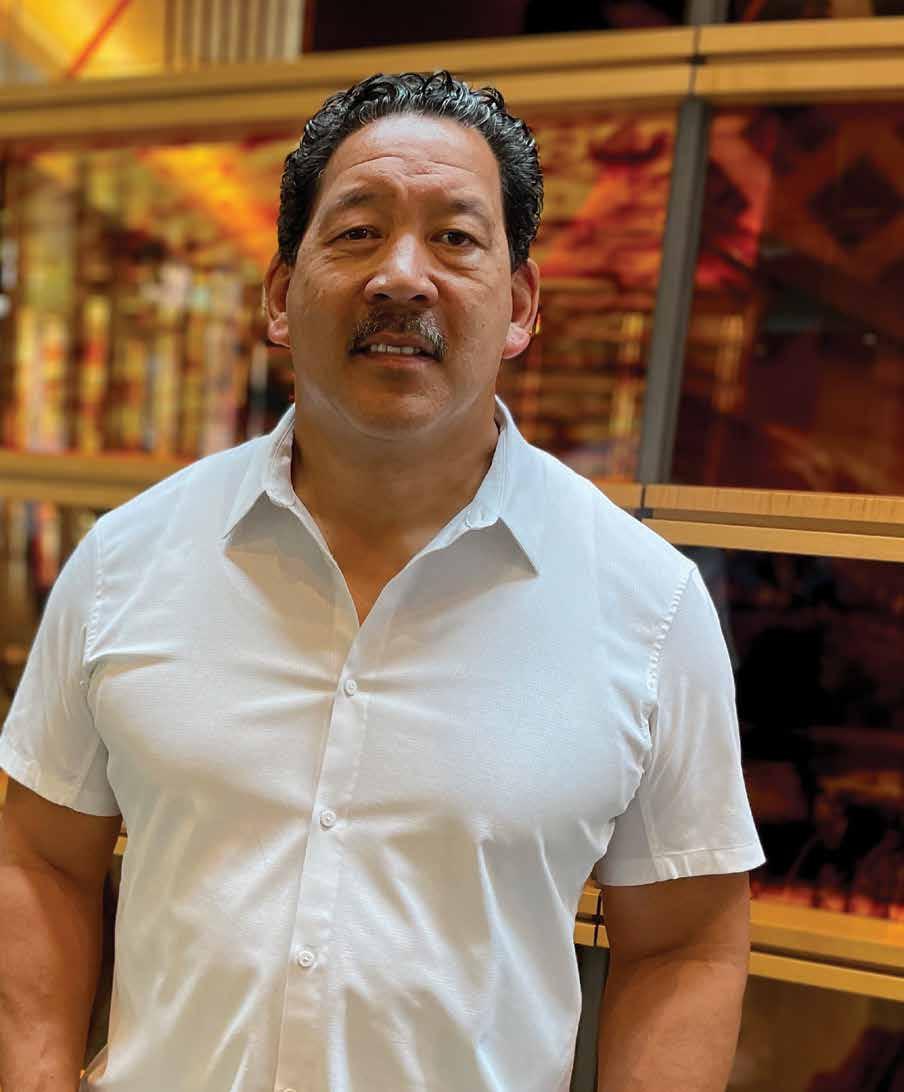
continued from page 12
Another area of positive change has been our focus on the environment. In my youth, I remember the conditions of some of our parks and signs along Lake Washington, warning people to not swim or eat the fish. This meant there were limited spaces for people to recreate and to cool off. There’s been a committed focus in our region to advocate for healthy air, clean water and a safe environment.
While the lake is safe and clean now, it’s remained a priority for me as an elected official to continue this effort to strengthen our parks, waterways and tree canopy — driving positive improvements for generations of kids, families, fish and all populations that live in our region in harmony with our environment.
You graduated from Garfield High and attended University of Washington on a football scholarship (foregoing Harvard) for undergrad and stayed there for law school. Can you tell me about an important educational experience that shaped your future?
The most important foundational educational experiences of my life were provided by teachers, coaches, and other mentors, who both gave me the tools and inspired me to learn, grow, and


become the best version of myself. At Garfield, we were encouraged to explore and debate the issues of the time – from the Civil Rights movement to the Vietnam War, which gave me an enduring interest in current events and public policy.
During my time at the University of Washington, I volunteered with the Prisoner Counseling Program and helped tutor incarcerated individuals. This was a life-changing experience as a student who was interested in studying law, and it gave me a passion for advancing the rights and opportunities of those who are often left behind.
You had a notable career playing football for the Huskies in the ‘70s. Thinking back, what did you learn about leadership and being a leader through sports?
One important lesson I learned as a student athlete was that there is no substitute for hard work — something that coaches Don James and Jim Lambright would always tell us players to help build a culture of continuous improvement. As an athlete, that looked like putting in extra hours at the gym or analyzing game films to find where I could perform better. This mindset of self-optimization
continued from page 16
ParentMap is proud to highlight local area nonprofits making a difference in our community as part of our Giving Together campaign.
Since 1897, Seattle Humane has been dedicated to the human-animal bond by saving and serving pets in need. As one of the region’s leaders in animal adoption, education and welfare, Seattle Humane is more than just an animal shelter — it’s a community resource center, providing adoption services, a pet food bank and support for pet owners, low-cost spay/neuter surgeries and wellness exams, humane education for all ages and more.










continued from page 14
is one I’ve carried throughout my career as a public servant, putting in the time and effort to learn, grow and improve so I could drive positive change for my community and the people counting on me.
As Seattle’s mayor, many look to you for leadership. Who are leaders you admire and look to for guidance? My wife, First Lady Joanne Harrell, is a supportive partner in everything I do. She worked for 20 years as an executive at Microsoft where she broke boundaries, often being the only Black woman in the room in an industry that is predominately male. She served as the CEO of United Way King County, on the Board of Regents at the University of Washington, and as the 2022 Frisky Endowed Leadership Chair at the Foster School of Business. Even with all her prestigious accolades, she remains humble, grounded, and continues to inspire me to bring my best self to my work every single day.
What are some of the biggest challenges you’ve faced as mayor? What is the proudest moment of your tenure (so far)?
Downtowns across the country are facing numerous challenges adapting to the rise in remote work, an ever-evolving retail landscape, the need for more affordable housing and public safety. Downtown Seattle is the economic engine of our region and it runs on people, which is why I launched a comprehensive plan to activate this neighborhood with new small businesses, art installations and activities including a new pickleball court. The plan also includes new incentives for building more childcare and education facilities, recognizing how that is needed for families in a city.
Safety for all people in our city remains my top priority. I am proud of my office’s work to launch and expand Seattle’s third public safety department, the Community Assisted Response and Engagement (CARE) department, which includes behavioral health responders to assist in emergency calls. We know people in crisis need compassionate care and support, and this new department is a milestone for our efforts to have a holistic public safety system.
How can you and other city leaders continue to make Seattle even more family friendly? Does your family play a role in how you imagine the future of Seattle? Access to parks and recreational activities have always been important to me — whether as a kid playing baseball at Rainier Playfield or an adult watching my
own children and grandchildren run and play. Seattle is lucky to have nearly 500 parks, playfields and community centers; we want them to remain welcoming areas for recreation, learning and healthy communities. I was proud to launch a program called Swim Seattle in our community centers, which offers affordable swim lessons for children to remove barriers to learning to swim and eradicate drownings. Last year, the city offered 3,350 free swim lessons to youth at our facilities, building a safer future for our kids in a city surrounded by water.
Seattle also continues to be a national leader in early childhood education with our Seattle Preschool Program. This award-winning program serves 2,500 young learners in our city with affordable, high-quality education, including many dual-language classrooms which uplift our city’s amazing diversity and teach our youth to be thoughtful problem solvers.
What is your favorite family-time activity in Washington state?
All our children and our two grandchildren participate in competitive activities, whether it be basketball, baseball, chess, baseball or equestrian. We love traveling to different parks, gyms, trails, and other recreational facilities to watch our family compete and, win or lose, enjoy the journey.
Any exciting news you can share with us about Seattle in 2025 and beyond?
I’m really excited to see our Waterfront Park completed next year, realizing our vision of a vibrant, world-class public space. The project continues to make exciting progress, including Overlook Walk which will connect Pike Place Market to other destinations such as the Seattle Aquarium. We want our waterfront to be a place not just for visitors and tourists, but also for residents and families to come and enjoy.
We are also hard at work preparing for the 2026 FIFA World Cup, which will be the equivalent of six Super Bowls played in Seattle over three weeks. It will bring soccer fans all over the world to our city, putting us on the international stage and showcasing what a great city Seattle is for sports. ■
Allison Sutcliffe is ParentMap’s managing editor. A Midwestern transplant-turned-PNW lifer, she now calls Gig Harbor home. She loves nothing more than finding family adventures around Washington with her three kids in tow.







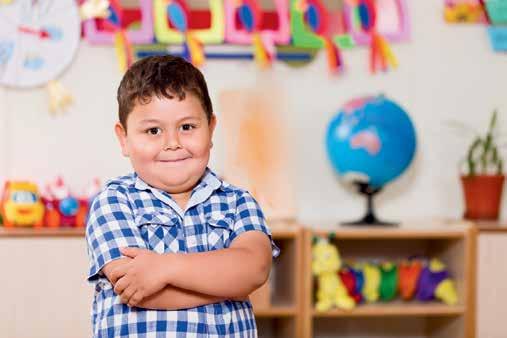


Students and parents find comfort and confidence in Washington’s charter public schools.
Educators meet students where they’re at, developing supportive curriculums that set every scholar on a path to success in and out of the classroom.
All Washington charter public schools are free, public, and open to all.



Professional
State-of-the-art
Safe










At YWA, we provide every student with the tools and encouragement needed to pursue their own personal journey.
• 1:1 (one teacher: one student) and small groups
• Grades 4 through 12
• Academically rigorous with personalized pace
• Wide range of courses including core academics, 3D printing, world languages and more yellowwoodacademy.org info@yellowwoodacademy.org

By Allison Sutcliffe
Kids learn a variety of skills while sitting in the classroom. But beyond running for student council, finding opportunities to build leadership skills aren’t always obvious or available. For tweens, teens and younger kids, participating in school-sponsored clubs and groups is one way to practice and gain those skills. Enrolling in a local program is another. Support your child’s journey to become a future leader with these local programs:
Outdoor leadership
During the summer months, Washington tweens and teens, ages 11–18, can sign up for the YMCA BOLD & GOLD program. Boys, girls and all-gender trips are offered to exciting destinations all around Puget Sound.
Spring and summer programs through Camp Fire Central Puget Sound’s Teen Leadership are another way tweens and teens can build their resume of leadership experience. From overnight retreats to day camp activities focused on team building, everyone is welcome to join the experience at the Camp Sealth property.
Civic leadership
If your kids love politics or want to learn more about how the Washington Legislature works, they can apply to the House page program. Kids age 14 and older (who haven’t turned 17 yet) work on the House floor for one week.

Rotary’s Interact Clubs bring kids ages 12–18 together to learn about service and connect with leaders in their community and around the world. School group participants complete two projects in a year: one with a local focus, the other is focused globally. ■






























By Sanya Pelini, Ph.D.
Raising successful kids comes down to a simple question: Do you want to be a leader or a boss? A boss manages things; a leader empowers, inspires, shows the way forward and makes it their business to connect with their employees every day.
Being a successful leader is tough. In the book “Speed: How Leaders Accelerate Successful Execution,” Jack Zenger and Joseph Folkman published the results of a study they undertook of 300,000 business leaders. These development consultants wanted to identify the characteristics and qualities of good leaders. It turns out that good leaders and good parents share quite a number of similar qualities. Here are just a few of them.

• Clearly identify your expectations and share those with your child.
• Give clear and regular feedback, even when that feedback is negative, but avoid lectures.
• Be up front and honest in your communication with your child.
• Listen more than you talk. Show empathy and put yourself in your child’s shoes.
• Find time to connect every day.
2/ Great parents and great leaders inspire.
1/ Great leaders and great parents know that good relationships are built on clear communication.
In a 2015 Interact/Harris survey about the “Top Complaints from Employees About Their Leaders,” 91 percent of the respondents considered their leaders lacking in communication skills. Up to 57 percent of respondents felt that they rarely received clear directions about what was expected of them.
Communication is a key foundation of strong relationships. Zenger and Folkman found that effective leaders communicated clearly and regularly with their employees. The same can be said about effective parents. Several studies suggest that having clear and appropriate (neither too high nor too low) expectations of your child has a large impact on their behavioral and educational outcomes.
Here are five things you can do to improve parent-child communication:
Research has shown that anxious parents are more likely to raise anxious children, not necessarily because of genetic issues, but because of their display of anxious behavior. In other words, if a child sees their parent react anxiously to a given situation, they are likely to begin reacting anxiously to that situation themselves.
Great leaders inspire and motivate others, and so do great parents. We now know that children learn how to react to different situations by watching us. In other words, modeling the behavior that you want your child to display is the most effective way of inspiring them.









continued from page 23
3/ Great parents and great leaders are also great cheerleaders. A great leader knows that their employees’ success is their success. They know that it is important for employees to believe that their leader is on their side. In the Interact/Harris survey on effective leadership mentioned earlier, 63 percent of the employees thought that leaders who did not recognize their achievements were ineffective leaders.
Just as employees need to have their achievements recognized, your child needs to know that you’ve noticed when they are doing a good job, even when — especially when — that progress is slow and painful.
Instead of simply praising your child, let them know exactly what they have done right. For example, “You’ve gotten so much better at reading since you began reading every day,” “You hardly made any mistakes — look how your music practice is paying off.” Over 30 years ago, Carol Dweck coined the term “growth mindset” after studying student attitudes toward failure. As Dweck’s research has shown, your child grows and develops when they feel like they have the power to change the events that happen in their lives. The more they feel capable of success, the higher the chances are that they will make an effort to achieve their goals.
4/ Great parents and great leaders focus on building trust in their relationships.
Great leaders and great parents care
about building relationships that are based on trust. As a parent, this is not only about being able to trust your child; he or she also needs to know that they can trust you and count on you.
Trust and accountability go together. Your child will make mistakes — all kids do — but allowing them to make amends when those mistakes happen shows your faith in them.
5/ Great parents and great leaders never hover.
Great leaders do not micromanage their employees. They do not hover over them, watching their every move and waiting to catch them in the wrong.
In 1996, researchers David Bredehoft, Jean Illsley Clarke and Connie Dawson observed more than 3,500 children over several years. They wanted to know if it was possible to “overparent” and how overparenting affected children’s development. The researchers found that overindulgent parents regularly stepped in to solve their children’s problems and failed to hold them accountable for their mistakes. These parents were determined to make life easier for their kids at all costs.
In the book the researchers published, “How Much Is Too Much? Raising Likeable, Responsible, Respectful Children — From Toddlers to Teens — In an Age of Overindulgence,” they explain that doing too much for your children is bad for them.

It can:
• Make them less confident in their ability to succeed
• Decrease the likelihood that they will take up leadership roles and thus hamper them in developing problemsolving skills
• Prevent them from reaching their full potential. As Bredehoft, Clarke and Dawson note, it can “hinder children from performing their needed developmental tasks, and from learning necessary life lessons.”
Clarke says that there are three types of overindulgence: doing too much for your child or giving them too many things; giving your child too much attention (i.e., you have a constant need to know where they are and what they are doing); and providing a soft structure, meaning that you do for them what they should be doing for themselves. Doing too much for your child harms you and it harms them.
Both great parents and great leaders know that without a strong relationship, none of their other efforts will matter. They know that strong relationships do not develop by themselves; they need nurturing to grow. ■
Sanya Pelini is a parent and researcher in education. She is passionate about child development issues and holds a doctorate in educational research. She transforms educational research into practical tools and resources on her blog Raising Independent Kids.






































By Katy M. Clark
Teach your kids to look for the new kids, not past them
I adjusted my off-the-shoulder sweatshirt covered in splatter paint. Inspired by the movie “Flashdance,” my sweatshirt did little to distract from the fact that I was a 5-foot-8-inch-tall 12-year-old standing alone outside a middle school classroom. It was the first day of school, and I knew no one. My family had just relocated to the area from several states away.
As I waited for the door to my classroom to open, I saw two girls whispering nearby.
“Smile,” I thought to myself as my lips curled over my teeth, covered in braces.
“Make new friends,” I could hear my mother’s voice coaching me inside my head.
They approached with the kind of confidence reserved for kids who grow up in the same place their whole lives.
“Are you the new teacher?” one of them asked.
“No,” I replied. Then I froze. I knew I was taller than the average 12-year-old, but had I just been mistaken for an adult? “I’m a new student here,” I told them.
And then they walked away.
Being the new kid is a phenomenon that many children will experience in their lives. School districts and government agencies
officially refer to it as student mobility, defined as any time a student changes school for reasons other than grade promotion. Student mobility can be voluntary, such as changing schools to participate in a magnet program, or involuntary, as in my case, due to a change in a parent’s job.
But on that uncomfortable first day, I was not thinking about what kind of statistic I was. All I knew was that I was alone, nervous and scared. The experience of being the new kid has encouraged me to teach my own children to look for the new students at their schools and be kind to them. In a culture that is desperate for kindness, reaching out to the new kids is a tangible way to demonstrate it.
The following are 10 concrete ways I’m
continued from page 27
teaching my kids to help the new kid at school. May you find these helpful to share with your own kids as the school year begins.
1/ Recognize that there will be new kids at school, kids who do not know anyone. Look for them, don’t look past them.
2/ Say hi. Ask where the new kid is from. Does she have any pets or siblings?
3/ Sit with the new kid at lunch. Seriously, just sit with him at lunch on the first day.
4/ Invite the new kid to hang out after school.
5/ Did I mention you should just talk to the new kid? It’s okay if you’re not best friends. Maybe you won’t have anything in common. But if you never even talk to the new kid,
then you won’t find out if you have anything in common.
6/ Tell the new kid about clubs, sports or other activities at school. When I was invited to join the basketball team, I gained a whole team of friends.
7/ Help the new kid find out where things are, such as the gym and the cafeteria.
8/ Sit with her on the bus or stand with him at the pickup loop. Even if it’s just for a day or two.
9/ Compliment the new kid. Maybe she has a cool backpack. Maybe she’s wearing a shirt with the logo of a sports team that is also your favorite sports team. Remember those girls who walked away from me on my painful first day? Later that day, one of them told me she liked my watchband. It was a small comment,
but it meant so much to me.
10/ Be welcoming and inclusive when participating in group work in class. Remember, the new kid knows no one, and things may have been run differently at his old school.
Parents, teach your kids to look for the new students and take any of these concrete steps to be kind and helpful. As a result, the new kid won’t feel so alone and will be one step closer to finding her way at a new school.
And if you see any new moms or dads standing alone at the pickup loop after school? Then it’s your turn to say hello. Ask where they are from. If you never even talk to the new parents, then you won’t find out if you have anything in common. ■
Katy M. Clark is a writer and mom of two who embraces her imperfections on her blog, Experienced Bad Mom.









































PERFORMANCES BEGIN NOVEMBER 22









By Allison Sutcliffe
I have a confession to make: I’ve only thrown my third child one birthday party and she just turned six. I know. I’m the worst.
But, I’m turning over a new leaf and throwing her a party this year. I came across so many questions that were desperate for answers in the process. When it comes to tricky invitation etiquette questions, here’s what I discovered.
Are texted invites okay?
In the land of electronic invites, most experts agree that texted invites for your child’s birthday party are 100 percent acceptable. The only caution I would offer is that invites sent via text through a site aren’t as easy to search as those sent from a recognizable number.
Do I have to invite the whole class?
Bottom line is no. But if your kid’s birthday falls in the school year, it’s always wise to defer to the school or classroom policy on this. And if you decide not to invite everyone, make sure your little celebrant knows so they don’t boast about it during class time.
Should I ask people to RSVP?
Although the RSVP has fallen out of style, it’s hard to plan accordingly without a headcount. Many electronic invitations offer RSVP options. Take the guesswork out of planning and politely request a response.
Do I have to invite siblings?
Many kids come with siblings, but whether you include them in your celebration or not is up to you. Whatever you choose, make sure to spell out the expectation in the invite so parents of invited guests can make arrangements one way or the other. ■

































































































Activities for little kids that will have you home in time for school pickup
By Natasha Dillinger
When my older child started school, she left her little brother without his favorite playmate. So while big sister is learning in the classroom, he and I still go on all our adventures, but it’s just the two of us, unless we meet up with friends.
However, we are now beholden to the schoolday schedule.
These outings perfectly suit the preschool and toddler set, fit nicely within the school day and land us back home in time for school pickup.
Climb high
Do tall rope structures inspire your little climber? Head for Montlake Playfield in Seattle, or Redmond’s Grass Lawn Park. Are bright colors more their style? Let kids practice risky play amid rainbows at Totem Lake Park in Kirkland or West Fenwick Park in Kent. Both of these playgrounds feature soft turf or poured rubber surfaces
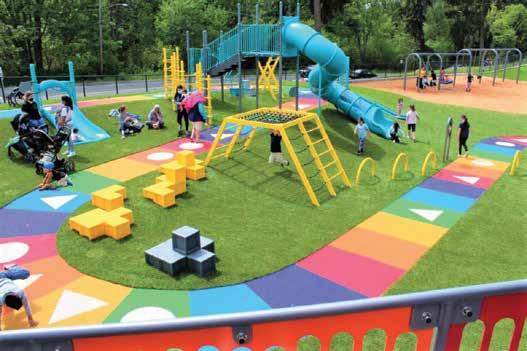
that cushion falls (just in case Spider-Man morphs back into Peter Parker).
Climbing gyms in Seattle are surprisingly welcoming to young children. We visited Seattle Bouldering Project’s Poplar location recently and loved the kid-focused downstairs area. Parental supervision is required, but there’s no age limit! Little ones can enjoy the brightly colored holds leading to forts and slides, while parents will appreciate the cushy crash pads beneath. Once you’ve worked up an appetite, head to the nearby Chinatown–International District for a snack.
Meet cute critters
Nothing beats the look of awe and wonder on a toddler’s face when they get to interact with an animal up close. We love heading out to meet new furry, feathery and scaly friends around town.
Woodland Park Zoo is a favorite neighborhood haunt of ours. On rainy days, we move
between airy covered spaces, the picnic shelter near the carousel and the otter habitat. Cougar Mountain Zoo is known for its caring staff and up-close animal encounters. South Sound destination Point Defiance Zoo & Aquarium features a wonderful nature-themed tot play area that’s tons of fun.
For a low-key (and free!) farm visit, check out The Produce Market at Flower World in Snohomish. Goats and sheep often wander close enough to the fence for a pat, and kids can go inside the bird enclosure to see ducks, geese and peacocks. Pick up a snack at the farm stand and meander across the street to Flower World to walk through the gardens. Farrel-McWhirter Park on the Eastside is another place to meet farm animals, as is Kelsey Creek Farm.
Play indoors
When you’re ready for the sensory-bin clutter and pillow fort cleanup to happen some place other than in your home, head to a




Come join us at Seattle’s Green Lake Park for the Washington CeaseFire 5k Run/Walk Sunday, October 6, 9:30 a.m.
This is a great way to show support for reducing gun violence in our schools and communities.
Scan to register:

Or go to: washingtonceasefire.org
Since 1983, Washington CeaseFire, a nonprofit organization, has been working towards implementing reasonable solutions to reduce the toll of gun violence in Washington State.

continued from page 31
local kids’ museum or indoor play space. We’re fortunate to have several around the Puget Sound region, and each one has features that make it unique and worth a stop.
Inclusive Kaleidoscope Family Gym continues to serve families from Puyallup and around the South Sound area. The Safari play space sits in a handy location inside Southcenter Mall. In Everett, Imagine Children’s Museum continues to impress after its expansion, which included a bunch of awesome new hands-on exhibits.
Bellevue’s KidsQuest Children’s Museum features two floors of interactive space — the tree-house-style reading nook and package-sorting facility are my preschooler’s favorite distractions. The Children’s Museum of Tacoma offers pay-what-you-can admission and low-sensory hours on Thursdays, 1–4 p.m., to help make playtime accessible to all families.
Garden exploration
While walking through a tranquil garden might not be the first thing I’d think about when coming up with toddler outings, Seattle-area botanical spaces are surprisingly kid-friendly.
We love to crunch in fall leaves at Kubota Garden or the Washington Park Arboretum, which also has a tiny tot lot playground. The Seattle Chinese Garden, located at South Seattle College, features a bamboo forest that’s perfect for games of hide-and-seek and a pavilion with a sheltered porch for rainy days. Feeding dandelions to the chickens at the Danny Woo Community Garden was a big highlight for my son. One of the best things about the gardens is that entry to most of them is free — you don’t even have to pick up a spade!
Boardwalk stroll
One of the biggest obstacles for hiking with my preschooler on weekday mornings is distance, both the drive time and the trail length.
His little legs do well on flat boardwalks, however. Boardwalks are usually short, with minimal elevation gain, and they offer lots to see. We love spotting trout at the Northwest Stream Center in Everett (reservations required). We look for birds at North Creek Park in Bothell and the park-like West Hylebos Wetlands in Federal Way. Shadow Lake Nature Preserve, in Renton, features another fascinating boardwalk stroll.
You might even try an urban hike — you don’t even need to leave the city. Perhaps one of these urban nature spaces is waiting just down the street from you.
Tots on wheels
Some city bike paths are intimidating for toddlers on scooters or balance bikes, but we’ve found a couple of parks that offer paved spaces without big kids or adults speeding by.
The bike playground in Dick Thurnau Memorial Park is truly one of a kind. A former tennis court (smooth, flat surfacing!) has been painted with realistic lane markings and signs. It’s a great place for big kids to practice the rules of the road, but tots can wobble across the space to their hearts’ content while older siblings are at school. The play area is fenced on three sides with a sidewalk ramp to the parking lot, so you’ll have plenty of warning if your little one attempts a getaway.
At Puyallup’s Van Lierop Park, you’ll find a smooth path covered in bright yellow painted flowers; motivating a tot on a balance
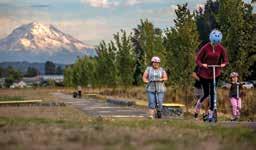
bike is as easy as coaxing them to the next blossom (or the treats at Farm 12 next door). Visit on a clear day for views of Mount Rainier, and return in late May or early June to spy fields of beautiful purple lupines.
For roller-coaster fun for tots on two wheels, try a pump track. Little kids on balance bikes can even navigate some areas of the track.


Set sail
My son loves watching the white wake behind a ferry, or dipping his fingertips in a lake alongside a boat. There’s something about water that seems to exert a strong pull on toddlers. (Life jackets are a must, for just that reason.)
For an easy cruise in the South Lake Union area, make a reservation for a free one-hour peapod boat rental at The Center for Wooden Boats. (Life jackets are provided.) These little rowboats are a manageable size, and you can stick to the center’s lagoon if Lake Union feels too choppy. After your boat ride, watch the seaplanes take off, and play at the small playground behind Daniel’s Broiler. ■
Natasha Dillinger is a Seattle mom who paused a career in accounting and finance to focus on showing her two young children around the Pacific Northwest.




































































From the state fair to the King Family Fun Center, this city has something for the whole family
By Kristin Leong
Nestled in the shadow of Mount Rainier and famed for the Washington State Fair and The Daffodil Festival, Puyallup is a delightful blend of history, nature and community charm, with deep roots. Puyallup means “the generous people,” derived from the Indigenous people of the same name, who are known for their hospitable spirit and have called this area home for thousands of years.
In the early 1830s, Dr. Tolmie, the first European settler to document his travels, passed through what he called the “Poyallipa”’ valley. Then, in the late 1800s, pioneer Ezra Meeker, later known as the “Hop King of the World” and for being Puyallup’s first mayor, laid out the city of Puyallup amid the valley’s fertile hop plants and berry bushes, becoming a wealthy farmer in the process. His legacy lives on in Meeker Mansion, which was built in 1890 for $26,000, an extraordinary sum at the time. The mansion is an essential visit for history-buff parents and curious kids.
For a fun-filled family day, start your adventure at Bradley Lake Park. This beautiful park is home to a playground and a 12-acre lake that’s perfect for year-round fishing — but only for the kids and grandparents! Fishing is currently restricted to kids younger than 15, seniors and disabled persons who possess a designated harvester companion card.
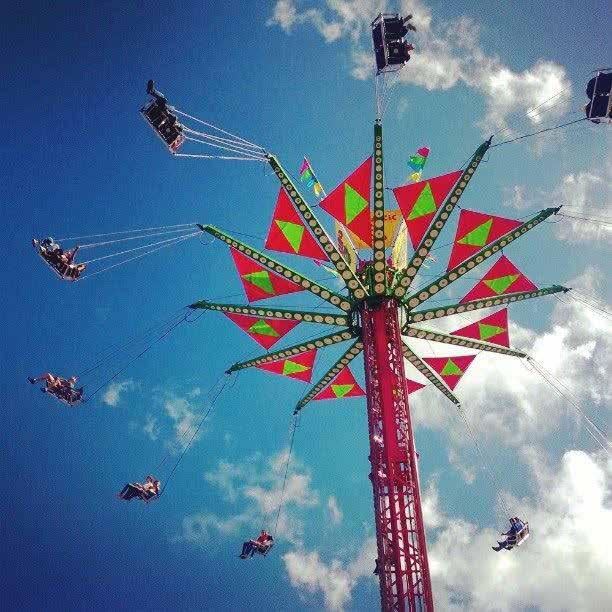
If you visit between Aug. 30 and Sept. 22, don’t miss the Washington State Fair for a full day of fun. The Pavilion is the epicenter of excitement, with rides, an animal-petting farm, carnival games and deep-fried everything. A day at the fair is a rite of passage for any Pacific Northwest family, as well as a great way to tire out the kids.
For a high-energy indoor adventure, you won’t want to pass up Round1. Located in the South Hill Mall, this entertainment complex is a kid’s dream come true. With
bowling, karaoke, arcade games and a kids play zone, it’s easy to lose track of time here. The King Family Fun Center is a great place for families looking to play 18 holes of miniature golf. The course















continued from page 35
challenges everyone to hit a hole in one and is open daily in the summer months. The schedule changes to weekend- only hours after Labor Day.
Start your Puyallup culinary journey at Melody Boba House. This cozy spot offers a variety of bubble teas that are perfect for a sweet pickme-up. Its strawberries and cream liquid dessert is especially tantalizing, with its fresh strawberries, chocolate sandwich cookies and vanilla ice cream.

For something a little heartier, head over to Elements. This cute, family-friendly coffeehouse and cafe offers a health-conscious menu that caters to all tastes, from avocado naan toast and breakfast sandwiches with pesto aioli to fro-yo and freshly pressed juice. The laid-back atmosphere makes it a great place to relax and refuel before your next adventure.
If you’re looking for more of a mom-and-pop vibe, Mrs. Turner’s Hometown Café is the perfect place for diner classics, such as chicken-fried steak, pancakes and chili burgers, served in generous portions by friendly staff who feel like old friends.
Lick Homemade Ice Cream is another local favorite. This gem serves classic and creative flavors, such as Butterfinger and peanut-butter-banana-brownie, that will appeal to ice cream aficionados of all ages. Pro tip: Definitely order your scoops in Lick’s amazing housemade waffle cones. ■
Kristin Leong is ParentMap’s senior editor. She is the founder of The Family Court Report, a multimedia hub sharing news and human stories from the front lines of America’s Family Court system. A first-generation scholar and originally from Honolulu, she now lives in Seattle with her wife, son, and rescue pups Radley and George. She writes a newsletter for misfits and unlikely optimists called ROCK PAPER RADIO.
By Michael Berry
For many families, finding the right music lessons is the easy part. It’s getting your kids to practice that’s the real challenge. Here are some tips to help motivate your mini musicians to practice their craft, whatever it may be.
In the beginning, short, consistent practice sessions are best, sometimes as little as five minutes a day. This allows the child’s body to adjust to the demands of making music and keeps the practice time within their attention spans.
Try to have kids practice at the same time every day so it becomes a habit.
And while technology can’t practice for a
child, it can help in other important ways:
• Recording lessons via your smartphone is a great help at practice time (just remember to ask your instructor before recording).
• Possibly in part to Covid, many private teachers are now offering virtual lessons via Zoom or other online platforms. This can be particularly useful for students in rural areas where private teachers may be hard to find or for families who are tight on time, shuttling kids to and from activities.
• A metronome app can help students learn to keep a steady beat. There are many to choose from for both Apple and Android.

• No matter what your instrument, tuning apps help students tune their instruments and improve intonation.
• Finally, music theory apps allow students to practice naming notes, spelling scales and identifying key signatures. ■
Michael Berry is an orchestra director in the Puyallup School District and serves on the music diversity task force. He is also active as a freelance classical double bassist in the region.









This month is all about sunflowers, spawning salmon and the state fair
Check out many more happenings online at parentmap.com/calendar
By Julie Dodobara

While the kids may be back in school, summer isn’t officially over yet. There are still bluesky days ahead to make for fantastic family outdoor excursions to the state fair, an urban farm or a sunny field of sunflowers. Fests aplenty are happening, along with theater productions, a Lego convention and our first tastes of fall — think crisp apples and lederhosen. So, as we all ease back into our school-year routines, be sure to get out this month and play!
� Have you heard the news? The long-awaited state-of-theart new Ocean Pavilion at the Seattle Aquarium is now open! Beginning on Thursday, Aug. 29, you and your sea-creature-loving crew can feast your eyes on an array of aquatic life, from sharks and rays to mangroves and schooling fish, along with nearly 30 species of coral from the tropical Indo-Pacific waters of the Coral Triangle — 3,500 plants and animals in all! Admission starts at $26.70; ages 3 and younger are free.
� Witness salmon embarking on their spawning journey from Puget Sound to the Cedar River at Seattle’s famous Ballard
Locks. Get a peek at these swimmers as they make their way through the fish ladder. With a park ranger on hand, you can learn interesting facts about the salmon’s trip and find out how we can help our fishy friends. Saturday–Sunday, Aug. 31–Sept. 1, Sept. 7–8 and 14–15. 10:30 a.m.–3:30 p.m. Free.
� A family that pedals together enjoys quality outdoor time together! Take advantage of the last sessions of Bicycle Weekends on one of the best biking paths around, when a section of Lake Washington Boulevard is closed to most vehicle traffic from Saturday morning to Sunday evening.
Aug. 31–Sept. 1 and Sept. 21–22. Free.
� September means it’s time to do the Puyallup! Rain or shine, the Washington State Fair is a tradition for so many families. Brave the carnival

rides, savor fair treats, admire animal exhibits and more. The fair runs Aug. 30–Sept. 22 this year (closed Tuesdays, plus Wednesday, Sept. 4). Gate admission $12–$20; ages 5 and younger free; shows and rides cost extra. Discount for online purchase; additional deals available.
� Frolicking among giant, gorgeous blooms promises to create some light and bright memories at Schilter Family Farm’s Sunflower Experience in Olympia. Entry includes a wagon ride to the 5 acres of sunflower fields and one bloom to take home. Snap your pics in the fields while the kids enjoy a romp at the playground among other fun activities. Thursday–Sunday, Sept. 5–8 and 12–15. Advance tickets cost $11–$16; ages 2 and younger enter free.
� Follow the beacon that leads you to Mukilteo’s Lighthouse Festival, where fun kids’ activities, a parade and a huge fireworks show await. What better reason to head to the scenic beach near the Mukilteo Ferry Terminal? Friday–Sunday, Sept. 6–8 at Lighthouse Park. Free.
� Lego enthusiasts, attend the longest-running Lego fan convention in the world at BrickCon 2024. Admire models built by superfans and get some inspiration for your own creations at Meydenbauer Center in Bellevue. Saturday–Sunday, Sept. 7–8. Tickets $16–$19; ages 4 and younger are free.
Aug. 29–Sept. 30 | Daily
New Ocean Pavilion opening month
Seattle Aquarium
� Kids Korner activities, live music and a pet parade make Edmonds Oktoberfest a family affair, though there is, of course, beer for grown-ups. Head to the playfield at Edmonds City Park for all the merriment of this autumn tradition. Friday–Saturday, Sept. 13–14. Free, with fees for some activities.
� Celebrate the varied cultural traditions and cuisines of Latin America represented in our local community. Commemorating the independence of Latin American countries, Sea Mar Fiestas Patrias welcomes all for food demos, kids’ activities, folkloric performances and more. Join the party at Seattle Center, Saturday–Sunday, Sept. 14–15. Free.
� Crisp, juicy apples from Snoqualmie Valley orchards are a fall treat and one of the best reasons to celebrate the season with our families. Pressing apples into cider and swinging yourself into the saddle for a horse ride are just two of the fun fall activities at the Fall City Apple Festival. The fest takes place at the Northwest Natural Horsemanship Center, with proceeds supporting equine therapy for veterans and summer-camp scholarships for kids. Sunday, Sept. 15, 10 a.m.–5 p.m. Free entry; food and some activities for purchase.
� Visit a 10-acre community farm located right in the heart of Seattle. The Rainier Beach Urban Farm & Wetlands invites
Aug. 30–Sept. 22
Washington State Fair
Washington State Fair Events Center, Puyallup
Sept. 15 | Saturday
Fall City Apple Festival
Fall City
SPONSORED EVENT

all to stop by for a community fest celebrating local food, city farming and healthy living. Create seed paper, craft using elements of nature, and ride the smoothie bike. Saturday, Sept. 21, 10 a.m.–3 p.m. Free entry; food for purchase.
� If you have a young reader at home, you are surely familiar with “Cat Kid Comic Club” by author Dav Pilkey (who also wrote “Dog Man” and “Captain Underpants”). Seattle Children’s Theatre now brings you a madcap musical based on the popular graphic novel series, which follows the hilarious adventures of Cat Kid and friend Molly Pollywog. Various dates, Sept. 26–Oct. 27. Tickets start at $35.
� Both state and national parks are celebrating National Public Lands Day with a fee-free day on Saturday, Sept. 28, so cross your fingers for sunny skies and head for the hills. Entrance fees into national parks are waived, and you can park in a state park without a Discover Pass.
September 14
Farmer’s Daughter Market
Join us for our upcoming Farmer’s Daughter Market in Enumclaw, where we will be hosting 35+ vendors from around the local area. thomassonfarm.com/ farmers-daughter-market
� The Port of Tacoma hosts a Touch-A-Truck event as only the port could do. Motor on over to meet the people who make the port run, and get up and personal with a 42-foot straddle carrier, gigantic shipping containers, a train engine, and other port heavy-duty maintenance and security vehicles. Snacks will be served! Saturday, Sept. 28, 10 a.m.–2 p.m. Preregister for this free event.
� You won’t find a more passionate audience for helping our planet than kids, so why not bring yours to the Loyal Heights Community Center for the Sustainable Ballard Festival? They will have a blast racing solar cars, planting seeds for an edible garden, and pressing apples into cider while getting inspired to lower our carbon footprint and live more sustainably. Saturday, Sept. 28, 11 a.m.–4 p.m. Free. ■
Julie Dodobara is ParentMap’s calendar editor.



